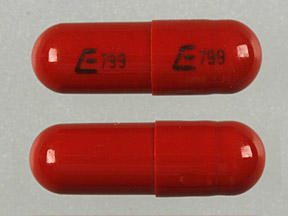
Rifampin Coupons & Savings Card – Discount Prices from $36.98
Generic for: Rifampin+syrspend sf
Rifampin, also known by its brand name Rifadin, is an antibiotic primarily used to treat both active and latent tuberculosis (TB). In addition, it helps prevent the spread of meningococcal infections in individuals who carry the bacteria without showing symptoms. Belonging to the rifamycin class of antibiotics, Rifampin works by inhibiting an essential enzyme that bacteria require to produce proteins, thereby halting their growth and spread. This medication is effective only against bacterial infections and will not work for viral infections like the common cold or flu. It is important to use antibiotics only when necessary to avoid resistance. Rifampin is usually taken orally once or twice daily, and when used for TB, it may be prescribed alongside other medications such as isoniazid. A notable side effect is a temporary change in the color of teeth, body fluids, and urine. Always consult with your healthcare provider before taking Rifampin to ensure it is appropriate for your condition.
Our coupons are free to use. Before paying, show the pharmacist your Rifampin savings card to get your free discount. Use our filters below to edit the prescription box to match your needs. The Rifampin prices will update based on your prescription needs. Above our Rifampin coupons, you can change your location to see pharmacy prices and costs in other areas. We're here to help you buy Rifampin at the lowest price with our prescription discount card.
My prescription
Edit
300MG, Rifampin (60 Capsules)
Select pharmacy

CVS
$36.98
COUPON PRICE
Walmart
$44.11
COUPON PRICE
Albertsons
$53.96
COUPON PRICE
Walgreens
$57.06
COUPON PRICERifampin savings card
Show this card to your pharmacist
CVS
$36.98
BIN
ID
PCN
GRP
019876
LH37CD1BD6
CHIPPO
LHX
Powered by
Rifampin, also known by its brand name Rifadin, is an antibiotic primarily used to treat both active and latent tuberculosis (TB). In addition, it helps prevent the spread of meningococcal infections in individuals who carry the bacteria without showing symptoms. Belonging to the rifamycin class of antibiotics, Rifampin works by inhibiting an essential enzyme that bacteria require to produce proteins, thereby halting their growth and spread. This medication is effective only against bacterial infections and will not work for viral infections like the common cold or flu. It is important to use antibiotics only when necessary to avoid resistance. Rifampin is usually taken orally once or twice daily, and when used for TB, it may be prescribed alongside other medications such as isoniazid. A notable side effect is a temporary change in the color of teeth, body fluids, and urine. Always consult with your healthcare provider before taking Rifampin to ensure it is appropriate for your condition.
Our coupons are free to use. Before paying, show the pharmacist your Rifampin savings card to get your free discount. Use our filters below to edit the prescription box to match your needs. The Rifampin prices will update based on your prescription needs. Above our Rifampin coupons, you can change your location to see pharmacy prices and costs in other areas. We're here to help you buy Rifampin at the lowest price with our prescription discount card.
More prescriptions for tuberculosis
coupons from$31.23Save 76%
coupons from$1.01Save 94%
coupons from$183.35Save 17%
coupons from$20.61Save 70%
coupons from$73.34Save 87%
coupons from$25.15Save 41%
coupons from$20.61Save 70%
coupons from$20.61Save 70%
More prescriptions for tuberculosis
Orapred Odt Save 76%coupons from $31.23
Dexamethasone Sod Phos +rfid Save 94%coupons from $1.01
Taperdex 7-day Save 17%coupons from $183.35
Gnp 24 Hour Nasal Allergy Save 70%coupons from $20.61
Pyrazinamide Save 87%coupons from $73.34
Hydrocortisone Sod Suc (pf) Save 41%coupons from $25.15
Nasacort Allergy 24hr Children Save 70%coupons from $20.61
Goodsense Nasal Allergy Spray Save 70%coupons from $20.61
Rifampin+syrspend Sf (Rifampin) dosage forms
Use our Rifampin+syrspend Sf (Rifampin) 150MG coupon with prices from $3.82 for 1 Capsule. You can also use our Rifampin+syrspend Sf (Rifampin) 150MG coupon with prices from $24.50 for 30 Capsules. We have a Rifampin+syrspend Sf (Rifampin) 150MG coupon with prices from $30.71 for 60 Capsules. You can use our Rifampin+syrspend Sf (Rifampin) 150MG coupon with prices from $46.98 for 100 Capsules.
Dosage Quantity Price from Per unit 150MG 1 Capsule $3.82 $3.82 150MG 30 Capsules $24.50 $0.82 150MG 60 Capsules $30.71 $0.51 150MG 100 Capsules $46.98 $0.47 300MG 60 Capsules $36.98 $0.62 300MG 1 Capsule $3.19 $3.19 300MG 8 Capsules $8.05 $1.01 300MG 10 Capsules $9.43 $0.94 300MG 20 Capsules $16.37 $0.82 300MG 30 Capsules $23.30 $0.78
| Dosage | Quantity | Price from | Per unit |
|---|---|---|---|
| 150MG | 1 Capsule | $3.82 | $3.82 |
| 150MG | 30 Capsules | $24.50 | $0.82 |
| 150MG | 60 Capsules | $30.71 | $0.51 |
| 150MG | 100 Capsules | $46.98 | $0.47 |
| 300MG | 60 Capsules | $36.98 | $0.62 |
| 300MG | 1 Capsule | $3.19 | $3.19 |
| 300MG | 8 Capsules | $8.05 | $1.01 |
| 300MG | 10 Capsules | $9.43 | $0.94 |
| 300MG | 20 Capsules | $16.37 | $0.82 |
| 300MG | 30 Capsules | $23.30 | $0.78 |
| 300MG | 40 Capsules | $30.24 | $0.76 |
| 300MG | 100 Capsules | $49.43 | $0.49 |
| 300MG | 500 Capsules | $181.95 | $0.36 |
